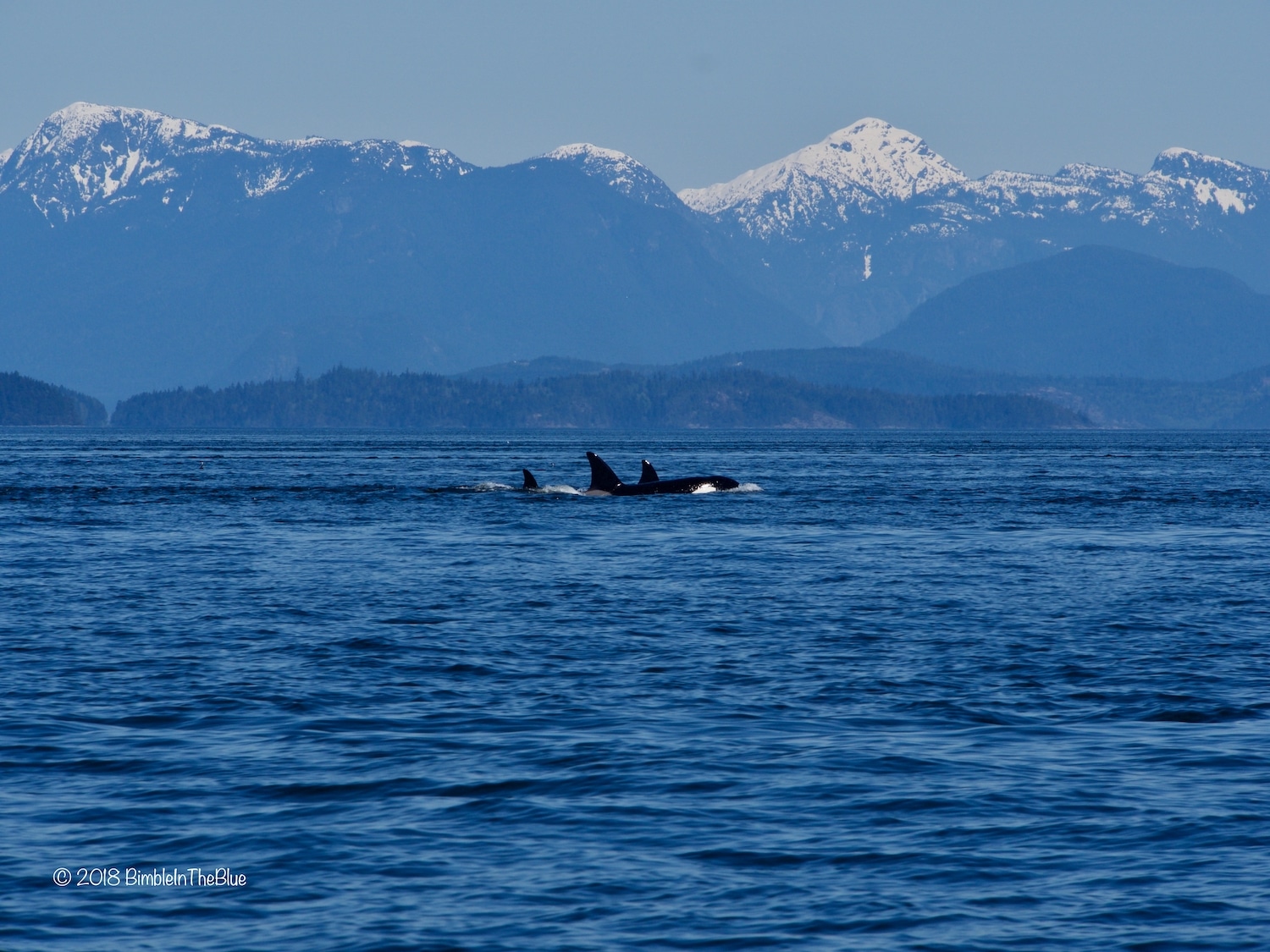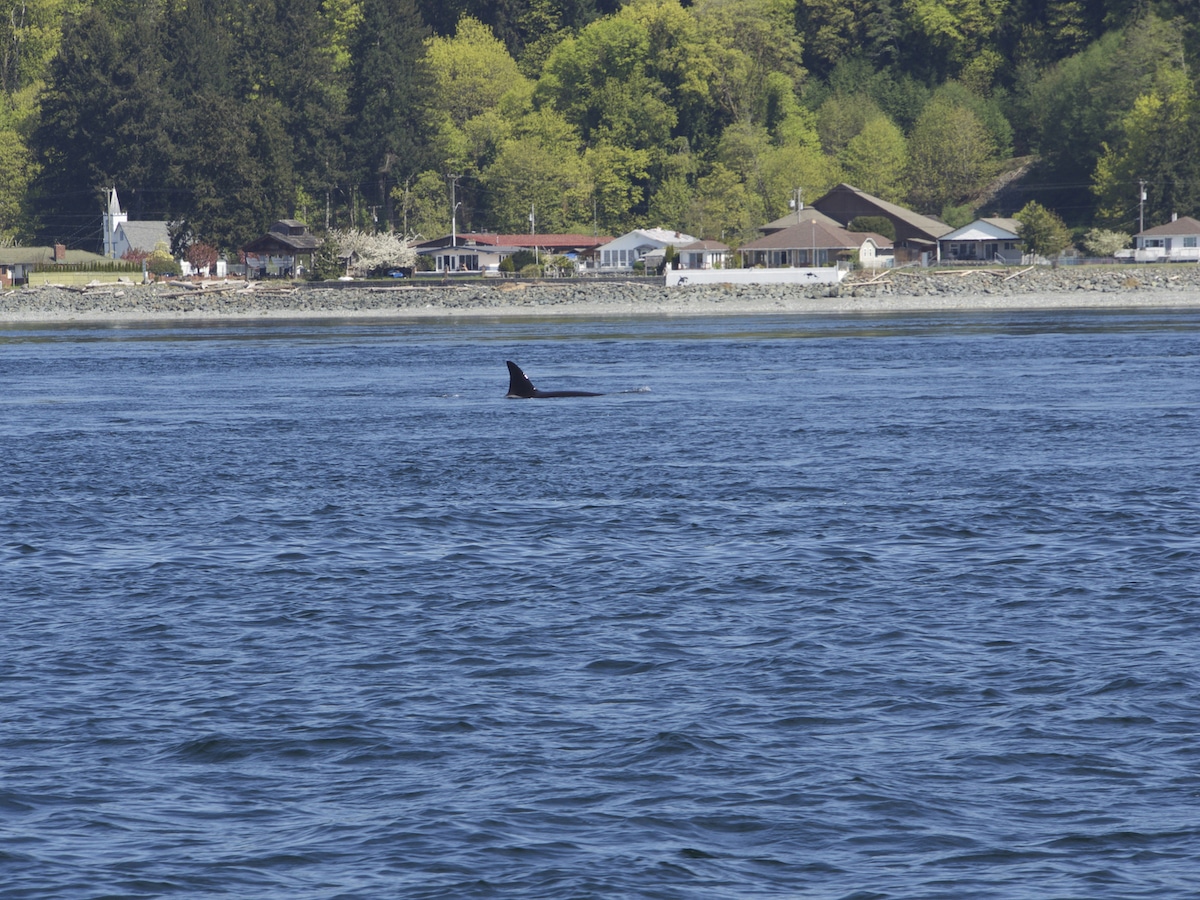Marine Life & Conservation
Fed Up With Fish Farms

Last year I was incredibly fortunate to get to see Orcas in the wild; this was a real ‘bucket list’ moment for me and an absolute highlight of a round the world trip Mike and I had just completed. Reminiscing on this experience the other day I was saddened by the thought that this may not be possible in the future if conservation efforts are not given a higher priority.
It is an incredible privilege to see these magnificent and intelligent creatures going about their natural behaviours, as we were able to on our trip to Vancouver Island in the stunning surroundings of the Salish Sea. The main purpose of our trip was, as ever, to go diving, however, the opportunity to go on a wildlife watching trip in an area famed for its cetaceans, pinnipeds and birdlife was not one we were going to miss!
Vancouver Island is a great place to see Orcas, as well as humpback whales, dolphins and other highly sentient creatures. If you enjoy watching wildlife, on or beside the sea surrounded by mountains and forests, then this really is paradise. Incredibly sadly though, like many of our most precious and stunning natural environments, it is under threat. I’m focusing on specific threats to Orcas here, but of course, many threats to this species also effect a much wider range of organisms. Helping Orcas, which are intelligent and long-living apex predators, benefits the entire ecosystem as a whole.

Extensive research has shown threats to Orcas include, but are not limited to:
- Noise pollution from boats and sonar interfering with Orca’s hearing, communication and hunting.
- Pollution of water sources resulting in poisoning as toxins get into fish and accumulates at the top of the food chain.
- Overfishing and dams which have depressed the wild salmon stocks. (The lack of wild salmon – many Orca’s main food source – means starvation for them. Some Orcas hunt pinnipeds, but pinnipeds are also fish eaters, so a lack of fish affects their numbers and a knock on effect on Orcas.)
- Fish farming has caused huge amounts of pollution, disease, low oxygen environments, and escape of non native species.
Fish farming is probably the biggest issue as the top three points can all be linked to the fourth.
1. Fish farms are patrolled by boats that create noise pollution.
2. Huge amounts of pollution come from fish farms.
3. Overfishing is increased by the demand for fishmeal and fish oil in pellets fed to farmed salmon.
Though they are not solely responsible, even a single large fish farm causes a disproportionately high environmental issue.
Worldwide there are more fish farmed than cattle and this causes massive environmental problems. Fish farming was once viewed as ‘taking the pressure off’ wild populations but sadly the opposite is true.
Salmon are the most commonly farmed fish. They are fed pellets made from commercially harvested wild fish and it takes approximately three times the amount of wild fish to raise one farmed salmon. Definitely not good for wild fish stocks.
Fish are kept in densely stocked pens, so to avoid disease and malnutrition they are fed antibiotics, pesticides and vitamins. Uneaten pellets and concentrated waste from the farmed fish goes directly into the environment. Large quantities of these pollutants become concentrated in small areas around the farming pens, causing eutrophication (pollutants contain nutrients that make algae bloom and the algae use up all the oxygen, creating a dead zone). Antibiotics and pesticides that can poison the surrounding water and accumulate in fish eating species. There is also considerable worry that disease and parasites present in densely populated fish farms can spread to the native wild fish populations.
Economy, jobs and shareholder profits are all important in the modern world, and are often cited when big business meets conservation. The issue is, if we ruin our natural environment, where will fish farms get the fish for fishmeal pellets? What do we do if all the water is polluted? Any industry that damages the environment so badly is not sustainable, so their profits are not sustainable. It doesn’t seem to make sense from a long-term business standpoint or a conservation one.

This may all seem a long way away, if you were not contemplating a little sojourn across the globe, however, our actions in our neighbourhood supermarket can make a huge difference to the future of Orcas and their fellow marine species.
Despite being in the UK, ordering a fillet of farm-reared salmon (often labelled as King Salmon or Farmed Atlantic Salmon) has severe consequences. By eating so much salmon in comparison with other fish, we create a demand for more than can be sustainably provided by our fisheries, leading to more demand from fish farms.
We can have a direct impact by changing our diet a little. We could choose not to eat fish at all, or eat it less often. Perhaps more realistically, we could pay a little bit more for sustainably caught local fish or simply choose something besides the most intensively fished and farmed species (such as salmon, tuna, cod and haddock). The Good Fish Guide by the Marine Conservation Society – www.mcsuk.org/goodfishguide/search – is an excellent place to start. All of us together can make a big difference if we all take the small step of changing our consumer habits slightly. In addition to helping Orcas, a small change in our diets will benefit many other species. By creating less pollution and a healthier wild fish population, the whole ecosystem benefits hugely.
Put simply, fish farming is a global problem: in Scandinavia, New Zealand and South America similar issues are affecting wildlife. Much closer to home are the fish farms of Scotland and our northern isles, where our traditional fishing industry is already struggling and our sea is much more barren and polluted than it should be. The great news here is that we have the power to force the change, simply by shopping a little wiser!
Unlike most conservation headlines we see, the story of Orcas is not all doom and gloom. In Canada, B.C. First Nation leaders have been taking their concerns to the Canadian government in order to remove fish farms from their traditional territory and talks are currently underway. In 2018, Washington State in the U.S. banned fish farms in their waters, after a series of incidents. If the ruling stands it will mean the current farms will not have their licences renewed once they expire in 2022. It is hoped that more positive news of this kind will follow in other countries soon.
So as a passionate conservationist that’s my crusade of the day: let’s help the Orcas. Orcas are awesome, they are a joy to behold, as is the incredible underwater environment they inhabit. If you get the opportunity I cannot recommend a trip to see them highly enough! And a few small changes in our habits can help preserve that opportunity for future generations.
Marine Life & Conservation
Double Bubble for Basking Sharks

 The Shark Trust is excited to announce that, for two more days only, all donations, large or small, will be doubled in the Big Give Green Match Fund!
The Shark Trust is excited to announce that, for two more days only, all donations, large or small, will be doubled in the Big Give Green Match Fund!
Donate to Basking in Nature: Sighting Giants
The Shark Trust is hoping to raise £10k which will be doubled to £20k. This will go towards Basking in Nature: Sighting Giants. And they need YOUR help to reach they’re goal.
The Shark Trust’s citizen science project is to monitor and assess basking sharks through sightings; encouraging data collection, community engagement, and promoting nature accessibility. This initiative aims to enhance health and wellbeing by fostering a deeper connection with British Sharks.
Campaign Aims
- Increase citizen science reporting of Basking Sharks and other shark sightings to help inform shark and ray conservation.
- Provide educational talks about the diverse range of sharks and rays in British waters and accessible identification guides!
- Create engaging and fun information panels on how to ID the amazing sharks and rays we have on our doorstep! These can be used on coastal paths around the Southwest. With activities and information on how you can make a difference for sharks and rays!
- Promote mental wellbeing through increasing time in nature and discovering the wonders beneath the waves!
Donate, and double your impact. Click Here
Marine Life & Conservation
Leading UK-based shark conservation charity, the Shark Trust, is delighted to announce tour operator Diverse Travel as a Corporate Patron

 Corporate Patrons provide a valuable boost to the work of The Shark Trust. The Trust team works globally to safeguard the future of sharks, and their close cousins, the skates and rays, engaging with a global network of scientists, policymakers, conservation professionals, businesses and supporters to further shark conservation.
Corporate Patrons provide a valuable boost to the work of The Shark Trust. The Trust team works globally to safeguard the future of sharks, and their close cousins, the skates and rays, engaging with a global network of scientists, policymakers, conservation professionals, businesses and supporters to further shark conservation.
Specialist tour operator Diverse Travel has operated since 2014 and is committed to offering its guests high quality, sustainable scuba diving holidays worldwide. Working together with the Shark Trust will enable both organisations to widen engagement and encourage divers and snorkellers to actively get involved in shark conservation.
“Sharks are truly at the heart of every diver and at Diverse Travel, we absolutely share that passion. There is nothing like seeing a shark in the wild – it’s a moment that stays with you forever!” says Holly Bredin, Sales & Marketing Manager, Diverse Travel.
“We’re delighted to celebrate our 10th year of business by becoming a Corporate Patron of the Shark Trust. This is an exciting partnership for Diverse and our guests. We will be donating on behalf of every person who books a holiday with us to contribute towards their vital shark conservation initiatives around the world. We will also be working together with the Trust to inspire divers, snorkellers and other travellers to take an active role – at home and abroad – in citizen science projects and other activities.”
Paul Cox, CEO of The Shark Trust, said:
“It’s an exciting partnership and we’re thrilled to be working with Diverse Travel to enable more divers and travellers to get involved with sharks and shark conservation. Sharks face considerable conservation challenges but, through collaboration and collective action, we can secure a brighter future for sharks and their ocean home. This new partnership takes us one more valuable step towards that goal.”
For more information about the Shark Trust visit their website here.
For more about Diverse Travel click here.
-

 News3 months ago
News3 months agoHone your underwater photography skills with Alphamarine Photography at Red Sea Diving Safari in March
-

 News3 months ago
News3 months agoCapturing Critters in Lembeh Underwater Photography Workshop 2024: Event Roundup
-

 Marine Life & Conservation Blogs2 months ago
Marine Life & Conservation Blogs2 months agoCreature Feature: Swell Sharks
-

 Blogs2 months ago
Blogs2 months agoMurex Resorts: Passport to Paradise!
-

 Blogs2 months ago
Blogs2 months agoDiver Discovering Whale Skeletons Beneath Ice Judged World’s Best Underwater Photograph
-

 Marine Life & Conservation2 months ago
Marine Life & Conservation2 months agoSave the Manatee Club launches brand new webcams at Silver Springs State Park, Florida
-

 Gear Reviews3 months ago
Gear Reviews3 months agoGear Review: Oceanic+ Dive Housing for iPhone
-

 Gear Reviews2 weeks ago
Gear Reviews2 weeks agoGEAR REVIEW – Revolutionising Diving Comfort: The Sharkskin T2 Chillproof Suit


















